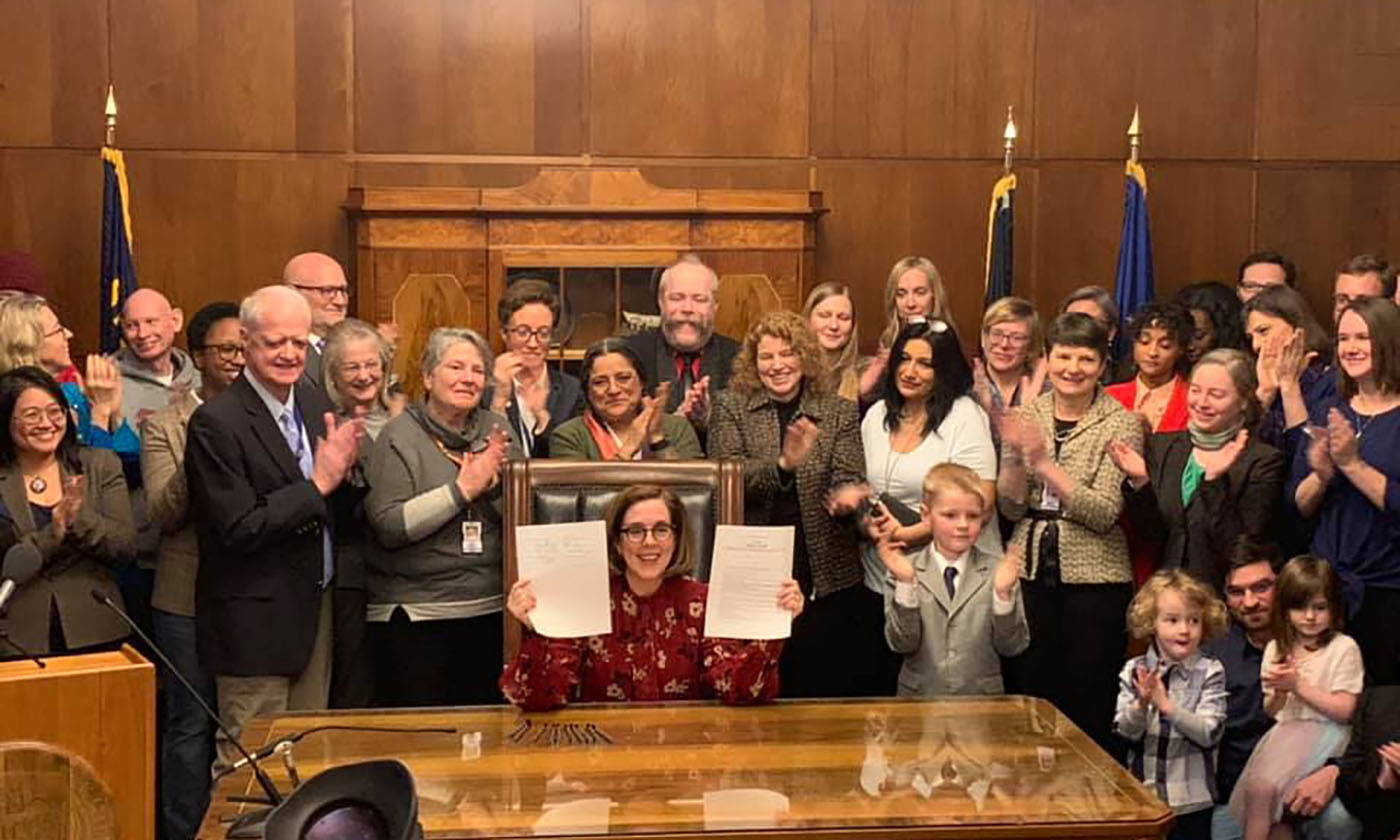Governor Kate Brown of Oregon signed rent control legislation into law at the end of February, and while many in the state and around the country commended the action to protect renters, others worry it is simply a temporary fix that will inevitably hurt the state’s economy, as well as the constituents it aims to protect.
Senate Bill 608 is the first state law of its kind, but rent control policies are somewhat common in large American cities.
New York City, Washington, D.C., Los Angeles and San Francisco have had some form of rent control or rent stabilization rules in place for decades.
Like many coastal states, Oregon has seen a substantial increase in housing costs in the last decade. Median rent increased roughly twenty-five percent in four years in smaller Oregon cities like Eugene, Bend and Salem.
The problem is being felt in southern Oregon as well, where in Talent, one in three residents spends more than half their income on housing.
Nearby in Medford, the rental vacancy rate is less than two percent.
The problem of increased rental costs might be most apparent in Portland. The state’s metropolitan hub has seen an increase of thirty percent since 2011.
Critics point to Oregon’s strict land use policies as one of the biggest factors involved in Portland’s increasingly unaffordable rental market.
In Portland specifically, zoning laws are in place to prevent urban sprawl which, in turn, prevents development in nearby locations. Portland also has “lengthy delays in permitting processes, onerous impact fees, and gaudy architectural design codes,” which further the issues developers face in the area.
Democratic majorities control both chambers of the Oregon Legislature. Senate Bill 608 was passed with thirty-five ayes and twenty-five nays, for the most part along party lines (three Democrats voted nay). The House roll call was as follows:
Roll Call
Senate Bill 608
Relating to residential tenancies; and declaring an emergency.
Third Reading & Final Passage
2/26/2019Voting Aye: Williamson, Alonso Leon, Bynum, Doherty, Evans, Gorsek, Holvey, Lively, Mitchell, Piluso, Power, Rayfield, Sanchez, Smith Warner, Williams, Barker, Clem, Fahey, Greenlick, Helm, Hernandez, Keny-Guyer, Marsh, McLain, Meek, Nathanson, Neron, Nosse, Prusak, Reardon, Salinas, Schouten, Sollman, Wilde, Speaker Kotek
Voting Nay: Barreto, Bonham, Findley, Hayden, Helt, Leif, McKeown, McLane, Nearman, Noble, Reschke, Smith (G), Sprenger, Wallan, Zika, Wilson, Boles, Boshart Davis, Drazan, Gomberg, Lewis, Post, Smith (DB), Stark, Witt
The Senate approved the bill on February 12th; the roll call was as follows:
Roll Call
Senate Bill 608
Relating to residential tenancies; and declaring an emergency.
Third Reading & Final Passage
2/12/2019Voting Aye: Senators Beyer, Courtney, Burdick, Fagan, Gelser, Golden, Hass, Monnes Anderson, Prozanski, Robian, Taylor, Dembrow, Frederick, Manning Jr., Riley, Steiner Hayward, Wagner
Voting Nay: Senators Baertschiger Jr, Bentz, Boquist, Girod, Hansell, Heard, Johnson, Knopp, Linthicum, Thatcher, Winters
Excused: Senators Olsen, Thomsen
SB 608 also declared this aspect of the housing crisis an emergency, so the following policies were immediately put into effect:
- Prohibits landlord from terminating month-to-month tenancy without cause after twelve months of occupancy.
- Provides exception for certain tenancies on building or lot used by landlord as residence
- Allows landlord to terminate tenancy with ninety days’ written notice and payment of one month’s rent under certain conditions
- Exempts landlord managing four or fewer units from payment of one month’s rent
- Provides that fixed term tenancy becomes month-to-month tenancy upon ending date if not renewed or terminated
- Allows landlord to not renew fixed term tenancy if tenant receives three lease violation warnings within twelve months during term and landlord gives ninety days’ notice
- Limits rent increases for residential tenancies to one per year
- Limits maximum annual rent increase to seven percent above annual change in consumer price index
- Requires Oregon Department of Administrative Services to publish maximum annual rent increase percentage
The legislation keeps in place the state’s policy of preventing cities from implementing their own more restrictive rent control policies.
After the bill was sent on to Governor Brown’s desk, its chief sponsors celebrated. “This groundbreaking tenant protection bill will make a real difference for Oregon renters,” said Representative Tina Kotek.
“Thank you to the advocates who made their voices heard and pushed our state to address the housing crisis. Today was one big step forward.”
U.S. Senator and presidential hopeful Kamala Harris also celebrated the bill, retweeting a video of Brown signing it into law and saying, “No one should ever have to choose between paying their rent each month or feeding their children.”
Opponents warn that the law will not fix the underlying issues and could actually make the situation worse for vulnerable families.
Research by the Brookings Institute suggests that Oregon (and the rest of the country) is actually grappling with two housing affordability problems.
According to the New York Times, not all property owners are expecting catastrophic results from the new legislation and some see it as a move in the right direction when tackling the state’s housing crisis.
“I do not believe it will be catastrophic to our livelihood,” said Jim Straub, legislative director of the Oregon Rental Housing Association.
Governor Kate Brown recommended that lawmakers and the Oregon Housing and Community Services Department should report back on the bill’s effects during the 2021 legislative session. Brown also encouraged the Legislature to approve $400 million in budget requests for affordable housing development, rental assurance and homelessness prevention.

